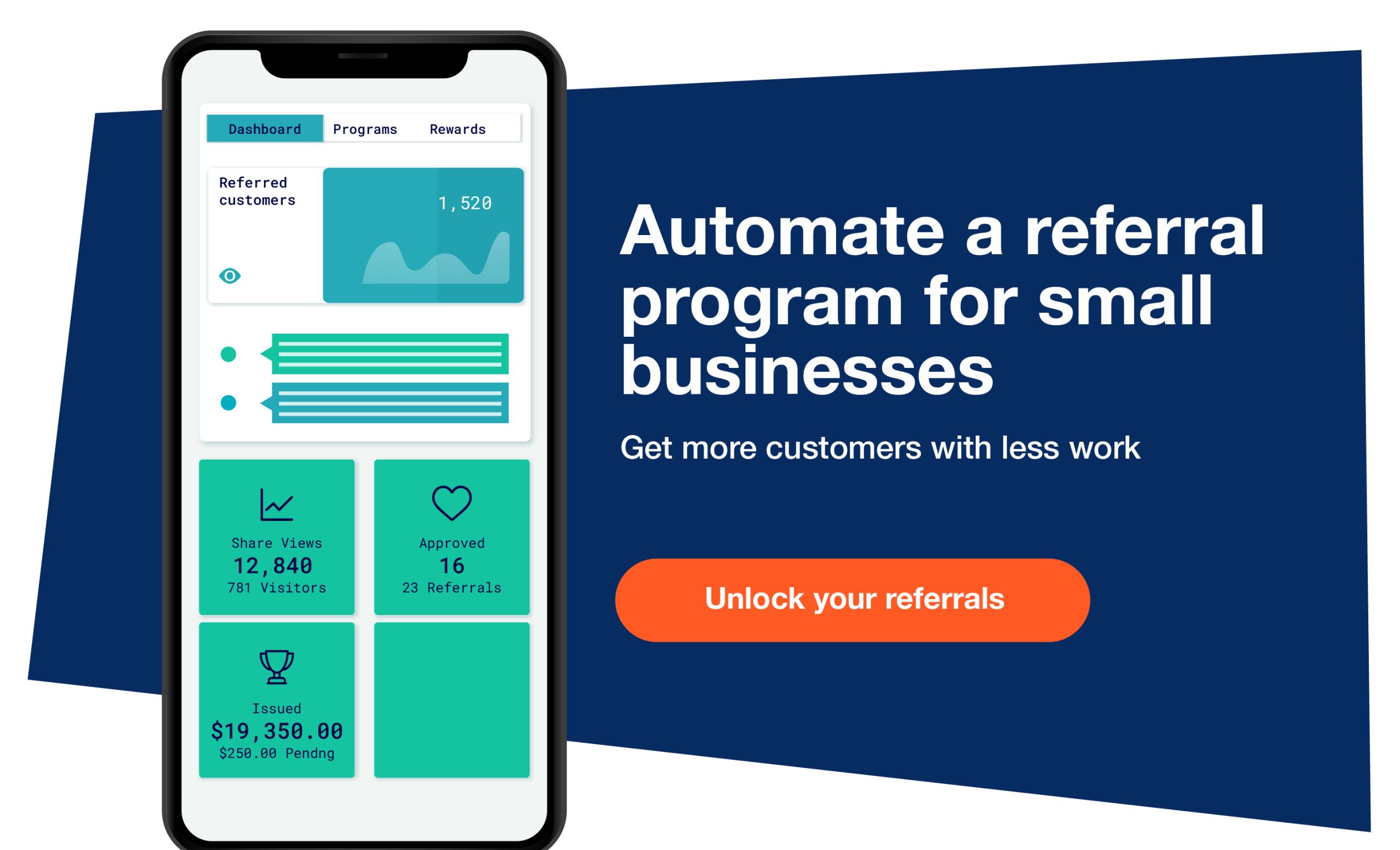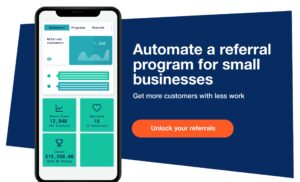How To Build A Successful Referral Program For Small Businesses

How To Build A Successful Referral Program For Small Businesses: To build a successful referral program for small businesses refers to the process of designing and implementing a strategic marketing initiative that encourages satisfied customers to refer new customers to the business.

This is achieved through various incentives and channels to leverage the power of word-of-mouth marketing. The goal of a successful referral program is to attract new customers, increase sales, and grow the business by harnessing the positive feedback and recommendations of existing customers. The referral program should be well-planned, easy to understand and participate in, and aligned with the business objectives. By effectively implementing and managing a referral program, small businesses can benefit from increased brand exposure, customer acquisition, and business growth.
FAQs & Answers
1, How can I make it easy for customers to refer others?
Ans: To make it easy for customers to refer others, provide them with simple and convenient referral methods. This could include providing referral links or codes that customers can easily share with their networks, adding social sharing buttons on your website or in your emails, or providing physical referral cards that customers can hand out to their friends and family. The referral process should be quick and hassle-free for your customers to maximize participation.
2, Why should a small business implement a referral program?
Ans: Referral programs can be highly effective for small businesses for several reasons:
- Cost-effective: Referral programs can be a cost-effective way to acquire new customers as the cost per acquisition is often lower compared to other marketing strategies.
- Trust and credibility: Referrals from existing customers or partners carry a higher level of trust and credibility, which can lead to higher conversion rates.
- Word-of-mouth marketing: Referral programs leverage word-of-mouth marketing, which is a powerful and organic way to spread awareness about your business.
- Customer retention: Customers acquired through referrals tend to have higher loyalty and retention rates as they are more likely to be satisfied with your products or services.
3, How can I track and measure a successful Referral program?
Tracking and measuring a successful referral program is essential to understand its effectiveness and make data-driven decisions. Here are some ways to track and measure your referral program:
- Use unique referral codes or links for each referrer to track their referrals.
- Set up referral-tracking software or tools that can automatically track and report on the performance of your referral program.
- Monitor and measure key metrics, such as the number of referrals, conversion rates, customer acquisition cost, and customer lifetime value.
- Collect feedback from customers who participate
What is a Referral Program?
A referral program is a word-of-mouth marketing strategy that motivates clients to promote your company. Customers may share their brand experiences with partners, coworkers, and friends through referral programs rather than posting reviews online or completing customer satisfaction questionnaires.
A referral program’s main objective is to bring new customers to your company. You’re not simply inviting anyone in, though. Customers will suggest leads that are a suitable fit for your brand if you encourage them to consider individuals who might profit from your good or service.
Because these leads are not only a good fit for your company but are also aware of it and its reputation, it only makes it simpler for your marketing and sales teams to cultivate and engage consumers. They have a trustworthy source telling them that your business is reputable and offers happy customers since they were suggested by someone they know.
Continue reading the following section for advice on how to set up a client referral programme if you’re prepared to start utilising word-of-mouth marketing at your company.
How To Build A Successful Referral Program For Small Businesses
1. Define Clear Objectives
Start by defining clear objectives for you to build a successful referral program. What do you want to achieve? Is it to increase sales, generate leads, or drive website traffic? Clearly defining your objectives will help you design a successful referral program that aligns with your business goals and sets the foundation for success.
2. Identify Target Advocates
Identify your most loyal and satisfied customers who are likely to refer your business to others. These customers can become your advocates and play a key role in driving referrals. Consider factors such as purchase frequency, customer lifetime value, and overall satisfaction to identify your ideal referrers.
3. Determine Incentives
Decide on the incentives you will offer to motivate customers to refer others. Incentives can include discounts, freebies, exclusive offers, or even cash rewards. Consider what would be appealing to your target advocates and what is sustainable for your business in terms of cost. The incentives should be compelling enough to encourage action but also aligned with your business goals and budget.
4. Set Program Rules
Define the rules and requirements for participating in your referral program. This includes specifying how referrals will be tracked, how rewards will be distributed, and any terms and conditions associated with the program. Make sure the rules are clear, easy to understand, and transparent to build trust with participants.
5. Create Simple and Clear Referral Process
Keep the referral process simple and easy for customers to understand and participate in. Provide clear instructions on how to refer others, whether it’s through a referral link, a unique referral code, or a simple online form. Make sure the process is user-friendly and can be easily executed by your customers.
6. Design Promotional Materials:
Create appealing and professional promotional materials to promote your referral program. This can include banners, social media graphics, email templates, and print materials for offline promotion. The promotional materials should clearly communicate the benefits of your referral program and provide easy-to-follow instructions for participants.
7. Leverage Multiple Channels
Utilize multiple channels to promote your referral program and reach a wider audience. This can include your website, social media, email newsletters, in-store signage, and offline marketing materials. Consider running targeted advertising campaigns to boost the visibility of your referral program to potential referrers.
8. Train and Engage Employees
Involve your employees in your referral program and provide them with the necessary training and resources to promote it. Your employees can be valuable advocates for your referral program and can help generate referrals through their networks and interactions with customers. Provide them with clear guidelines on how to promote a successful referral program and reward them for their efforts.
9. Monitor and Track Referrals
Set up a system to track and monitor referrals. This can be done through a referral tracking software or manually through spreadsheets or other tracking methods. Regularly review and analyze the data to evaluate the performance of your referral program and make data-driven adjustments as needed.
10. Communicate with Participants
Keep participants informed and engaged by regularly communicating with them. Send updates on the status of their referrals, notify them of any rewards earned, and express appreciation for their participation. This helps to maintain a positive relationship with referrers and encourages them to continue referring others.
11. Provide Excellent Customer Experience
Lastly, but most importantly, provide excellent customer experience to ensure that your customers are satisfied and motivated to refer your business to others. Deliver exceptional products or services, exceed customer expectations, and maintain a high level of customer service. Happy customers are more likely to refer others and contribute to the success of your referral program.
12. Improve your referral program
There is no set formula for designing the ideal customer referral programme. Depending on how you evaluate client wants and preferences, the optimal programme for your organisation will be distinct and sometimes quite different from your rivals.
The key lesson here is that it could take some time to determine what functions and what doesn’t, and that’s just acceptable. To determine what you’re doing well and where you may improve, you should evaluate your programme frequently.
Send surveys to your consumers to find out what they think of your programme, and be sure to include their input going ahead. After all, the more leads your referral programme generates for your marketing and sales staff, the better. Let’s look at various methods you can implement your referral programme now that we’ve covered how to do it and ways you can put this plan into action.
Customer Referral Program Ideas
1. Contests or Giveaways
Customers may be encouraged to recommend fresh leads through contests or giveaways. You may, for instance, hold a tournament into which participants must input a specific quantity of leads for your company. This might be giving out an email list or obtaining registrations for a free trial or subscription.
The quality of leads is the one danger associated with contests. You might not get leads who are interested in your company if clients are arbitrarily choosing their friends. Your marketing and sales teams will lose time sorting through connections that aren’t a suitable fit for your business as a result of this. Make sure to design competitions that motivate clients to recommend top-notch leads. By basing your admission costs on conversions rather than referrals, you may achieve this.
Customers who wish to participate the contest must get others to sign up for or buy your goods rather than just giving their email. This will guarantee that you’re compensating clients for sending qualified leads to your company.
2. Social Gifting

If clients don’t feel like you’re attempting to influence them, it’s simpler to motivate them. Customers are less trusting of your offer when you give out a coupon that says, “refer five people and get 25% off.” They understand that you’re attempting to gain something from them. Instead, you may use social gifting to promote recommendations without specifically requesting them.’
3. Fundraisers
With no reference to your product or service, fundraisers are a fantastic opportunity to connect with your consumers’ values. You may show that you understand your consumers on a deeper level than just their purchasing behaviour by becoming engaged with a cause they care about. You are aware of both their personal beliefs and what they want from your company.
Additionally, fundraisers offer a chance for referrals. Customers may easily tell their friends about fundraisers, and as more people contribute and become involved, your team will amass a database of prospects who share your company’s beliefs.
As a result, it will be easier for your company to contact these new leads and steer the conversation towards its goods and services.
4. Customer Loyalty Tiers
Ideas for referral programmes that reward one-time recommendations have been covered thus far. Although these are unquestionably successful, it might be challenging to have a contest every day or launch a fundraiser every other week. It is more effective to establish a referral programme that encourages consumers to recommend numerous others over time.
You may achieve this by setting up customer loyalty levels that offer rewards to those who continue to recommend leads. Customers are advanced into the next loyalty tier when they refer a certain quantity of leads, and each tier offers particular incentives. Customers are continuously encouraged to recommend fresh leads using this system, even when a contest or campaign isn’t going on.
5. Referral bonuses
You may also give your clients discounts based on how many leads they refer to your company if they want a more immediate reward for their recommendations.
The money you lose on the price will be made up for with the leads that you convert because getting a new client is considerably more expensive than keeping an existing one.
6. Upgrades to Products or Services
Upgrades to products or services provide fantastic incentives for customer referral programmes since they both draw in new clients and motivate current ones to keep using your goods. You can instead expose clients to beta features, goods, and services that the rest of your customer base isn’t aware of if you don’t have an improved good or service to sell.
This will not only “wow” clients with the new features your product development team has been working on, but it will also give them the impression that they are a member of an exclusive group with VIP access to these features. With this strategy, you’re not merely providing a reward in exchange for fresh leads. By enhancing their whole customer experience over time, you concurrently encourage consumers to provide favourable comments.
7. Charity Connections
In this situation, helping your community helps you. Instead of giving clients discounts or invitations to special events, team up with a nearby charitable organization and donate money each time a current customer refers a new lead.
This is especially helpful for long-term reputation and trustworthiness building for a company, both of which are now priorities for customers. How to use chat gpt for blogging to Make $70,000 Per Month?
8. Mystery Gifts
Who doesn’t adore a gift? And while choosing your own gift from a list of possible ones is wonderful, sometimes receiving a surprise is even better.
This is the concept behind mystery gift referrals; you send a surprise present to potential prospects who are recommended by current customers. Nothing excessive is required; simply something to express your gratitude will do. 22 Top Foods For Promoting Heart Health(All You Need to Know)
9. Exclusive Access
Offer exclusive access to special events, promotions, or limited-time offers to customers who refer others. This creates a sense of exclusivity and encourages customers to refer more people to gain access to exclusive perks.
10. “Win-Win” Referral Incentives
Offer a “win-win” referral incentive where both the referrer and the referred customer receive a discount or benefit. This encourages customers to refer others as they know that their friends or family members will also receive a benefit, making it mutually beneficial. The Potential Dangers of Restrictive Diets
11. Personalized Gifts
Offer personalized gifts or custom-made products as referral rewards, such as a monogrammed item or a product with the referrer’s name on it. This adds a personal touch and makes the referral reward more memorable and unique.
12. Anniversary Referral Program
Implement an anniversary referral program where customers are rewarded for referring others on the anniversary of their own purchase. This creates a sense of loyalty and encourages customers to continue referring others to your business in the long term.
Remember to always clearly communicate the details of your referral program to your customers, such as how they can participate, what the rewards are, and any terms and conditions. Make sure to track and monitor the success of your referral program and adjust it as needed to ensure it remains effective in driving new customers to your business. African Business Hero Scholarship for Young Entrepreneurs
Conclusion
Building a successful referral program for small businesses requires careful planning, implementation, and optimization. It’s important to understand your target audience, choose the right incentives, make it easy for customers to refer others, deliver exceptional customer experiences, measure program success, and continuously optimize based on data and feedback. Promoting your referral program through various channels and leveraging personalized outreach can also help drive customer participation. By following these key steps, small businesses can create an effective referral program that generates positive word-of-mouth, increases customer acquisition, and drives business growth.
Recommended:
Check out the following related articles…
How to negotiate your salary like a boss
25 ways to general passive income
How to pay off debt with a tight budget (Strategies 2023)




